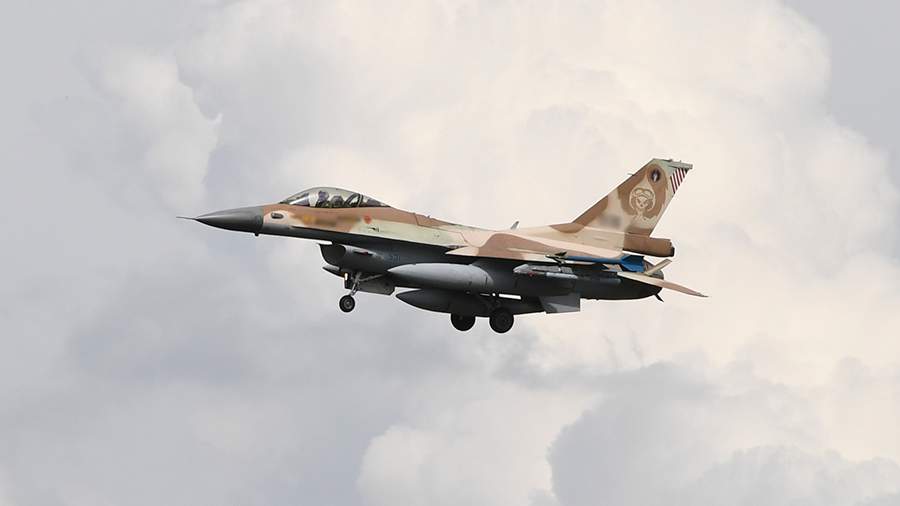Israel's objectives during the attack on Iran. What you need to know

The Israeli Operation Rising Lion began on the night of June 13, and it was stated that its task was to prevent Iran from developing a nuclear program that threatens the Jewish state. Israel attacked targets on the territory of the Islamic Republic: it eliminated several high-ranking military personnel, nuclear scientists and attacked the main uranium enrichment facility in Natanz. What you need to know about the Israeli operation is in the Izvestia article.
Three powerful Iranians among the dead
• Commander of the Islamic Revolutionary Guard Corps (IRGC) Hossein Salami. He has been the head of the IRGC since 2019. He was considered one of the most influential people in Iran and reported directly to Supreme Leader Ayatollah Ali Khamenei.
The IRGC, which was led by Salami, was "one of the most powerful tools of the Iranian state, which played an important role in suppressing dissent inside the country and spreading Iran's influence abroad." Analysts say that the elimination of Salami is akin to the removal of the head of the US Joint Chiefs of Staff.
• Chief of the General Staff of the Iranian Armed Forces Mohammad Bagheri. He has held this post since 2016. He was under US sanctions along with nine other close associates of Ayatollah Khamenei. Washington accused them, in particular, of pursuing "destabilizing policies around the world." In May, Bagheri was one of the participants in a meeting with representatives of Saudi Arabia at which Iran was urged to take seriously the proposal of US President Donald Trump to negotiate a nuclear agreement, because it provides an opportunity to avoid the risk of war with Israel.
• Advisor to Iran's Supreme Leader Ali Shamkhani. For ten years, he was the secretary of the Supreme National Security Council. Prior to that, he served as Iran's defense minister. In 2001, he ran for president. He was called a rising star of Iranian diplomacy, well-known in Washington and European foreign policy circles. Shamkhani represented Iran in the negotiations with Saudi Arabia, which led to the countries agreeing to restore diplomatic relations after years of hostility. In 2023, he was replaced as secretary of the Supreme National Security Council, when it was said that Khamenei might have considered him too ambitious.
Who else has been eliminated
Among those killed were Gholam—Ali Rashid, commander of the Central Headquarters of the Iranian Armed Forces, as well as six atomic scientists, including Azad Mohammad Tehranchi, President of the Islamic University, and Fereydoun Abbasi, former head of the Atomic Energy Organization of Iran.
A blow to the nuclear program
Israel attacked Iran's largest uranium enrichment facility in the Natanz area. The Israeli military notes that the infrastructure that is critical for the continuous operation of the facility has been hit. It is known that a number of modern centrifuges are installed at the facility, including the most advanced models needed for uranium enrichment. According to the IAEA, about 14,000 such centrifuges operate in Natanz.
Fordo Factory
Iran's nuclear industry is well developed, with its key facilities scattered throughout the country. It is known that some of them are located deep underground, which provides them with protection from air attacks.
In addition to the Natanz facility, one of the key complexes is the Fordo uranium enrichment plant. It is called the most protected nuclear facility in Iran. Presumably, it is located at a depth of about 700 meters, and, according to some reports, there are about 3 thousand centrifuges there. Moreover, it is noted that the facility has the most modern equipment available to Tehran.
It is the Fordo plant that is the main one for the country in the program to enrich uranium to 60%, that is, almost to the weapons level. Uranium enriched to low levels can be used as fuel for peaceful purposes, such as energy production. In turn, highly enriched uranium can be used in the creation of nuclear weapons.
Israel attacked the Fordo complex on the evening of June 13, and two explosions were heard near it. However, according to experts, the Jewish state would not have been able to carry out a truly effective attack on its own, without the participation of the United States, since it would have needed special ammunition for this.
During the preparation of the material, Izvestia interviewed:
- Igor Nikulin, a political scientist and former member of the UN Disarmament Commission.
Переведено сервисом «Яндекс Переводчик»


